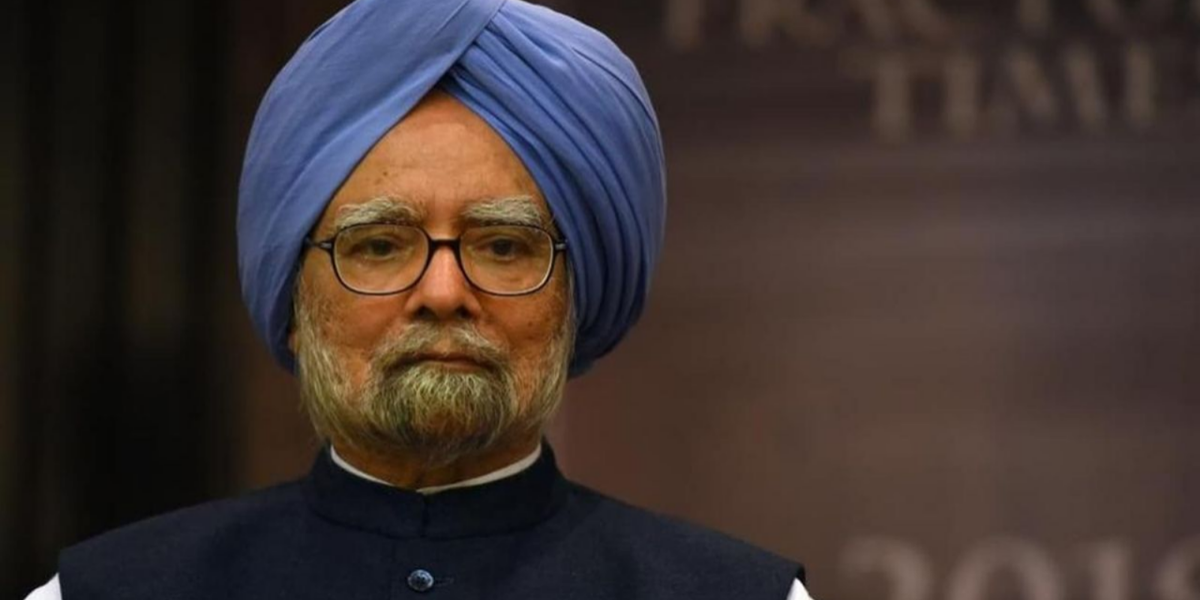Dr. Manmohan Singh served as prime minister for ten consecutive years and as finance minister for five years. His tenure as finance minister and the trade policies of the then-union government had substantial differences with the ideologies of Rashta Rishi Dattopnat Thengdi Ji.
The decreasing contribution of the agriculture sector to GDP and the rising gap between haves and have-nots are to due to the country’s economic policies after 1991. Whatever the compulsions, the nation’s Ginni coefficient was butchered. Who is responsible and who is accountable is the talk of history now.
In his budget speech of 1991, Dr. Singh’s concluding remark was that “No power on earth can stop an idea whose time has come,” and he did whatever was good according to the prevailing economic ideology of that time. In this speech, he also said,” I suggest to this august House that the emergence of India as a significant economic power in the world happens to be one such idea. Let the whole world hear it loud and clear. India is now wide awake. We shall prevail. We shall overcome.”
However, the nation was unprepared for the hard landing on the Liberalization, Privatization, and Globalization (LPG) runway. No runway existed for us to land our LPG plane.
It was the Covid 19 pandemic that made all of us realize in black and white that we have to do whatever needs to be done by us on our own, relying on our resources and trusting our human resources, and things have to be done not only for us but for the whole world. In the last four years, we have been marching ahead on the same belief that we realized with our naked eye post-COVID-19, without any scope of arguments. The debate on the economic policies of 1991 is far behind today.
Dr. Singh’s leadership was tested in 1991 when the Washington Consensus and the Bretton Woods tools were influencing our policies. The economic policies of 1991 were not a matter of choice. Dr. Singh was tasked with solving a problem and given the constraints to find the best possible solution.
During Dr. Singh’s tenure as prime minister, the country saw the successful implementation of many policies. The success of these policies can be measured in different ways by different stakeholders, but their impact is undeniable.
The formulation of the Right to Education Act, the National Rural Employment Guarantee Act, and the National Food Security Act are three significant contributions of Dr. Singh’s tenure as prime minister.
Any self-reliant nation aspires to food, energy, and defense security. Dr. Singh was well aware of the relevance of food security, which is reflected in the subsequent execution by the incumbent government.
The Right to Education Act is a novel policy. But today, the format of the education sector concern has risen to different dimensions. The education sector, along with oils and chocolates, is among the biggest culprits of import bills. The climate change and environmental concerns at the core of geopolitics are good things that motivate and provoke us to reduce our oil import bill. The chocolate import bill is simply a showoff of the wealthy class. Because of the rising student population going abroad and purchasing unproductive foreign degrees, the education import bill needs to be seriously considered. Dr. Singh’s tenure didn’t face this problem.
Ideologically, the National Rural Employment Guarantee Act seems to be a temporary arrangement. This act and the dreams of “Vikshit Bharat” are substitutes. The Swavalambi Bharat Abhiyan visualizes 37 crore entrepreneurs in our 37 crore youths.
Dr. Singh was a leader who listened to everyone and respectfully disagreed with different opinions. His behavior, such as not stopping his media advisor Sri. Sanjay Baru’s writing of the book ‘Accidental Prime Minister’ reflects his gentlemanly nature. As a politician, he was distant, but as an individual, he was at his core a gentleman. The nation is grateful for his contributions in steering us through difficult times.
(Alok Singh has a doctorate in management from the Indian Institute of Management Indore and promoter of Transition Research Consultancy for Policy and Management.)






